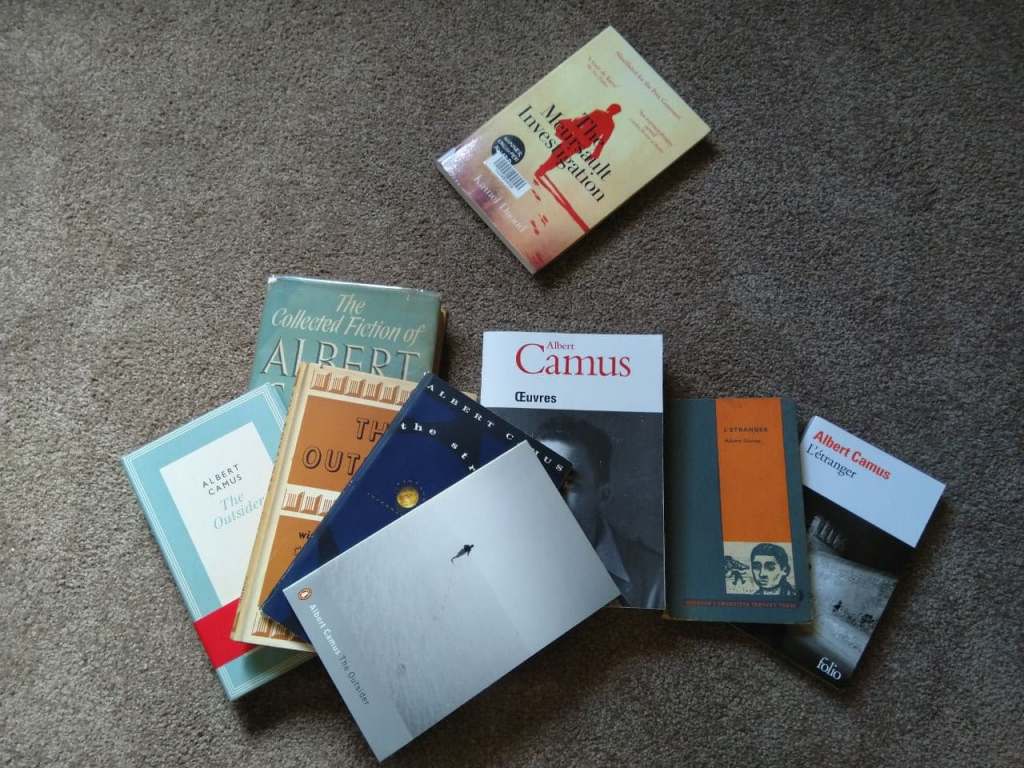A review of The Meursault Investigation by Kamel Daoud (trans. John Cullen)

Much as I felt like literally throwing this well-written fan-fic book away (I think I refrained because it was on loan from the library, and I have respect for the public library system of my country … at least their history, anyway) there are ways this book can be enjoyed.

Firstly, it can be enjoyed by the post-Said Arab decolonization crowd (of which I am not one) and I believe that’s maybe the chief way it is enjoyed and the means by which it is most chiefly lauded by Western intellectuals and literary prize-givers. There’s plenty of this discourse packed in there, almost as if through a megaphone sans any kind of irony, dramatic or otherwise.
It can also be enjoyed as fan-fic for lovers of the parent book. Even in my annoyance and despair with it, there were moments when I thought things like ‘Ah, nice work Daoud, I see what you did there, how you’ve taken something from Camus’ oeuvre and done this this this to it. Interesting. And that’s the allure of fan-fic for the fan, obviously; and I am definitely a fan of the parent work here. It strokes your ego like any in-joke. But it does get tiresome, particularly when it’s heavy and ham-fisted. Apart from these moments, there’s no question that the book is well-written: well-writ fan-fic.
Perhaps a more interesting way to approach it would have been as a prima-facie police-procedural of an actual investigation? Maybe that’s what I was expecting? Maybe that’s what Daoud wanted me to expect? Instead of this Jean-Baptiste Clamence figure narrating as if to Doctor Rieux about Meursault … you get the gist. The very hotch-potchyness that makes it well-writ fan-fic makes it tiresome and a little nauseating as a stand-alone work.

The narrator himself is interesting, particularly when it gets into his personal relationships and his relationship with his country and his religion, and here the over-reach for the Camusian “brand” plays against it, if anything. But it gets you to read the book (as it did me) so it would probably have never been read otherwise. It was a good commercial decision, if not artistic. And there is a string of irony if you want to look for it, in the effect of independence on the nation, the very effect Camus wished could be avoided even though he was ‘cancelled’ for his ideas in the fifties, well before it had become a culture…
Another way to enjoy the book might be to make a social-political comparison between Camus’ liberalism of his day, and its abject repudiation of nihilism as an end-product of liberlism; and our current age of liberlaism which has become almost too vacuuous to be nihilism; a sort of nihilism that doesn’t even believe in nihilism?
If you are a Camus-lover, as I am, and have maybe read The Outsider/The Stranger in every English translation (some of them more than once) and maybe have even worked your way heroically through the first forty or so pages of L’Etranger in French (like me) then you should perhaps read it, just to get it out of the way. If not, then I would not bother.















